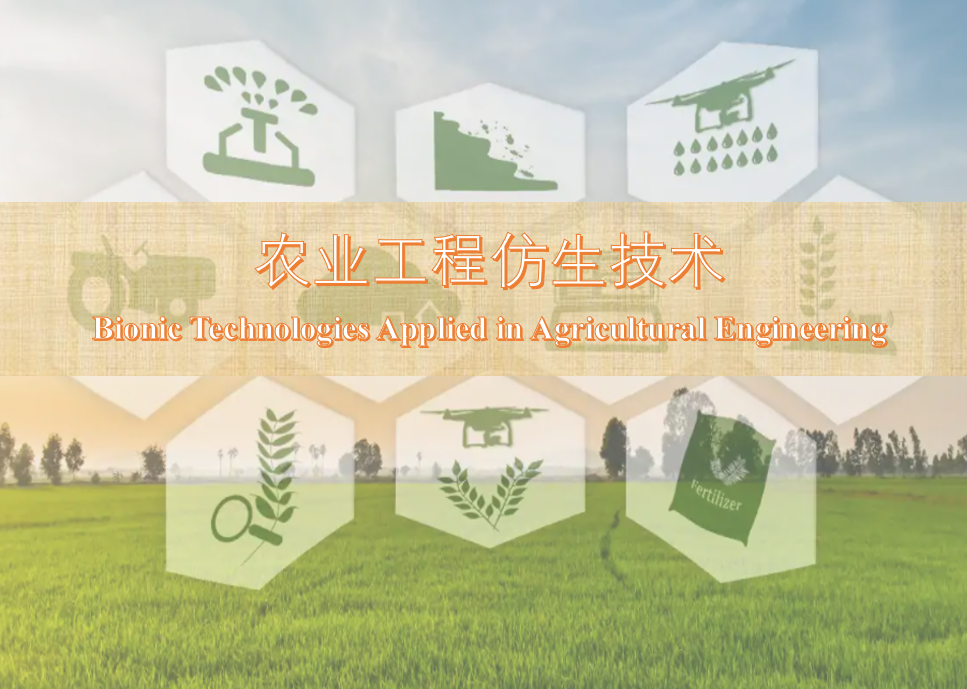Course Details
Teacher Introduction
“Bionic Technologies Applied in Agricultural Engineering” is a selective course for junior undergraduate students who major in Bionic Science and Engineering, focusing on cultivating students with innovative and divergent thinking, as well as the ability of knowledge application. The students are expected to know, through this course, the status and trends of bionic technologies applied in agricultural engineering, understand the theory, idea and methodology of bionic technology, and be aware of the scientific meaning and technical problems of existing bionic technologies applied in agricultural engineering. This course will improve the comprehensive ability of students in analyzing and resolving engineering problems, while expanding their ability of engineering design and research in agriculture. It will help students establish solid foundation for their future graduate study of work in the area of bionic science and engineering or related fields.
第1章 绪论
1.1 仿生学定义
1.2 仿生学广义与狭义理解
1.3 仿生学研究方法
1.4 仿生技术在农业工程中的应用
第2章 仿生学基础理论
2.1 仿生学基本要素
2.2 仿生基本原理
2.3 仿生基本原则
2.4 仿生研究的主要方法和技术
第3章 仿生技术概论
3.1 生物功能、特性与行为
3.2 仿生结构与力学
3.3 仿生材料
3.4 仿生功能器件及控制
3.5 人工智能与认知
第4章 农业工程机械系统仿生技术
4.1 农业工程机械系统仿生的研究现状
4.2 农业工程机械系统仿生学的研究方法
4.3农业工程机械仿生技术应用
4.3.1土壤粘附与触土部件防粘减阻仿生学
4.3.2农业机械触土部件结构仿生技术
4.3.3收获机械仿生技术
4.3.4松软地面机械仿生步行机
4.3.5水田行走机械仿生设计
4.3.6农业水土工程仿生应用
第5章 仿生食品与农产品品质仿生智能检测技术
5.1仿生食品
5.2嗅觉仿生-电子鼻
5.3味觉仿生-电子舌
5.4视觉仿生-电子眼
5.5 触觉仿生-压力传感
5.6 听觉仿生-电子耳
5.7 仿生技术在食品工程领域的研究展望
第6章 仿生机械与机器人
6.1 仿生机器人
6.1.1传统机械与人类活动的比较
6.1.2机器人的组成
6.2 机器人的研究现状
6.2.1机器人的研究内容
6.2.2机器人的应用
6.3 机器人在农业工程应用
6.4 机器人设计实例
6.5 机器人应用分析
第7章 仿生材料在工程领域的应用
7.1 生物材料及其性能
7.1.1 天然生物材料
7.1.2 生物复合材料
7.1.3 农业物料的摩擦与力学性能
7.2 仿生界面材料
7.2.1 生物界中典型的界面现象
7.2.2 仿生界面材料的研究现状
7.2.3 仿生界面材料的应用实例
7.3 仿生材料在其他农业工程中的应用
7.3.1 农业建筑结构材料
7.3.2 可生物降解材料
7.3.3 仿生农药
第8章 仿生技术工程应用展望
8.1仿生科技最新进展
8.2其它可能在农业工程上应用的仿生技术
8.3仿生学研究及应用的一些科学问题
Bionic science and Engineering
Professor / Doctoral supervisor

